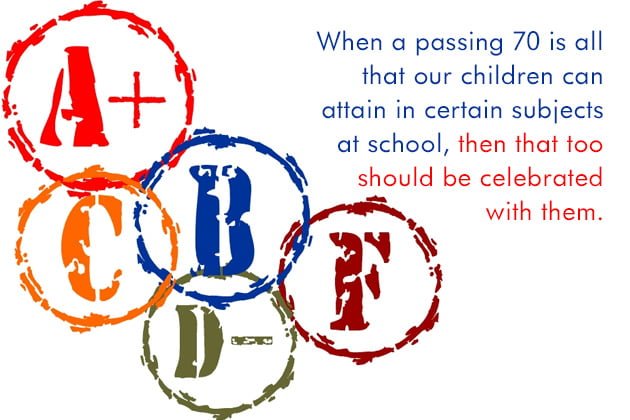By Gustavo A. Ramirez, Guidance Counselor / Education Consultant
We educators, while trying to teach young students, both in Primary and Secondary schools, perhaps without realizing it, often times confuse them even more than they already may be confused, by insisting that they focus on “our” visions of success – not theirs. “You had better pass my exam, or else…” Worse even, many parents also (consciously or unconsciously) add more confusion to their already stressed out teenage sons and daughters by pressuring them to “stay at the top” always at school, or remain in the “honors” category each term/semester. Too many parents do not view their children as successful unless they bring home grades in the 90’s or high 80’s. Sadly, this type of attitude from parents (and from many teachers) will only add to young people’s already stressed-out and burnt-out lives at school. Teachers and parents: let’s remember that teenagers are at an especially awkward transition period between childhood and adulthood. Let’s not make it worse for them with “our” constant demands for success.
As we start another year in this new millennium, let us make every effort to ensure that we are genuinely preparing our children for success in life – for “their” success, not ours. Let’s try to be more aware that too often we, teachers and parents, become far too preoccupied with our short vision of success for our children. So, let’s be more vigilant and careful of the constant pressure we may impose on our children everyday through our remarks about what we think of their progress, or lack of progress, at school. Most important, let’s make every effort to not use them as pawns to provide status and meaning in our own lives. Why?
Since 1978 I have participated in too many parent-teacher meetings where ecstatic parents can’t stop gloating to friends and relatives over their children’s high grades for the term/semester – not because the student was successful, but more so because high grades seem to automatically provide a more acceptable and enviable social status to parents. Celebrating success is good; however, weighing down our children with our constant demands for success at school by insisting that they pass with what we consider to be high grades is not good. Why? Our constant insistence on our children getting high grades will only further stress them out, and add more anxiety and depression to their already heavy loads at school. Also, it can lower their self-esteem (how they think of themselves) and make them feel that we have no idea whatsoever of what their real needs and wants may be. So, instead, let’s celebrate more often with our children what “they” consider as success (even if for some it’s scraping by, or just barely passing a class) each term/semester. Let’s always celebrate with them, their success, and in doing so encourage them to be resilient and independent at school, and in life.

I repeat: success should always be celebrated! However, success at school is not only for students who score high grades in the 90’s and upper 80’s. Of course, we should always encourage our sons and daughters to aim high, and not be satisfied with eking by with a 70 without “working for it”. Nonetheless, when a passing 70 is all that our children can attain in certain subjects at school, then that too should be celebrated with them.
We, parents and educators, need to constantly feed young students’ internal motivational engines. By doing so, we will keep spurring them to “their” greater success. However, let us (parents and educators) continuously reinforce for them that hard work does matter, and really is worth far more than just their sweat and toil. Moreover, with regular acknowledgement (our celebrating “their” success) they will be able to see the proof of the fruits of their labor at school and at home. So, parents and educators, let’s remember to always shine a light on students’ success, and in doing so we will make each success lasting and more impressionable. Keep in mind, though, that to get the desired effects, before we rush to praise students, we must choose the right tone, timing, and mode to match a student and a situation or success. We should never praise students as a form of manipulation, or in order to bribe or “make” them do what we might want. Rather, our comments should always be valid and worthy praising, done artfully and with joyous pride, not mere repetitive everyday praising, whether in the classroom or at home, that most students recognize as meaningless.
Author’s Note:
These articles on Education are not intended to be comprehensive or complete. They are written and contributed in an effort to provide a “starting point” for valuable discussion amongst educators, students, and the community. If we discuss and review students’ learning capabilities and the ways in which we currently try to educate them, we can learn from our mistakes as well as success. Way to go, fellow educators!
Click Here for More Guidance Counselor Articles











